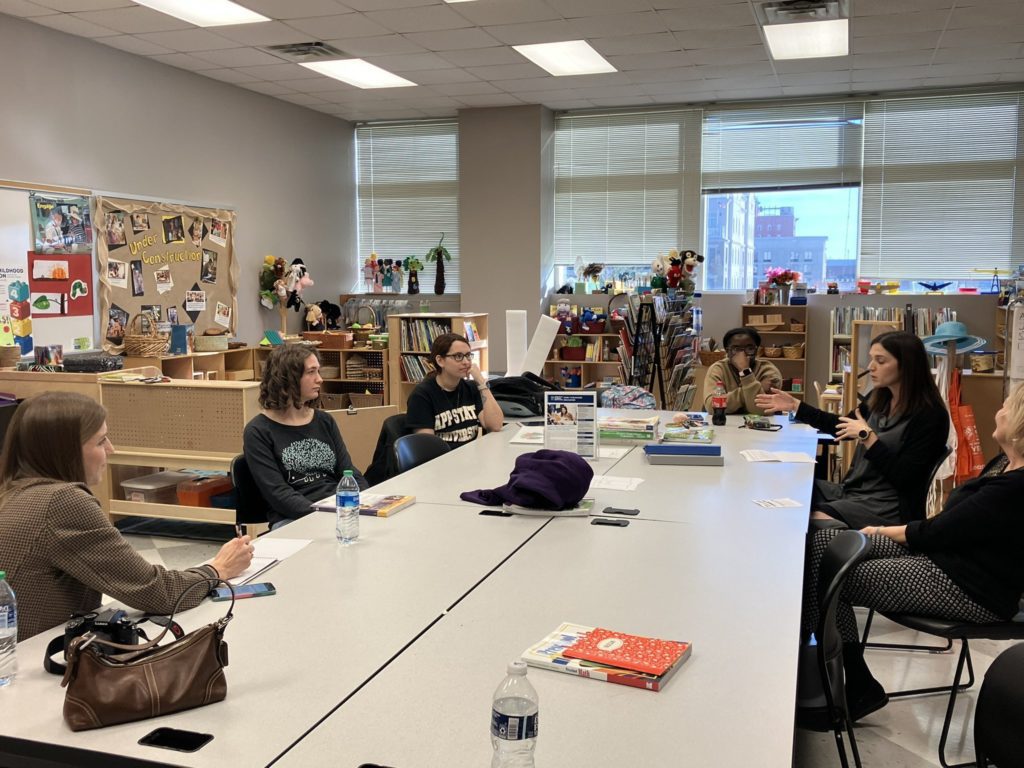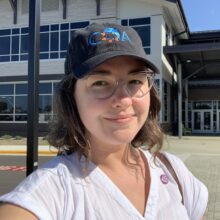'Can't be a solution without significant public investment'
Early Bird readers, hello again. Newcomers, welcome! If you were forwarded this email, you can sign up here to receive it every two weeks, and join our conversation on issues facing North Carolina’s young children and those who support them. If you’re already a subscriber, please help us reach more people by sharing this with your friends and co-workers interested in early childhood education.

Hi all! Katie here, stepping in for Liz this week while she’s out visiting one of our state’s 58 community colleges as we wrap up our #Impact58 project (see above).
This week I had the opportunity to do a deep dive into a new report from the NC Early Childhood Foundation. In October 2020, NCECF conducted a statewide parent survey to learn how the COVID-19 pandemic was affecting families with children age 5 and under. Now they’ve published a new analysis of those survey results that shows how child care and North Carolina’s economic future are “inextricably linked.”
Here are some findings that stood out to me:
- 400,000 working parents across the state are constrained by child care needs.
- 45% of parents with young children were dropping out of college/training or were declining training.
- Almost half (44%) of NC families with children lived in “child care deserts,” with less than one licensed child care slot for every three children from birth to age 5.
I was also surprised to learn — as were the report’s authors — that parents with two-year and four-year degrees were likely to live in low socioeconomic status (SES) households. Perhaps even more surprising was that 40% of parents with advanced degrees were also low SES.
I spoke with Muffy Grant, executive director of NCECF, about this finding and she agreed with my hypothesis that student loans were likely the reason behind it.
“And then you layer on top of that the fact that child care costs even more than the average tuition to a four-year degree-granting institution in the state of North Carolina,” Grant said, “it’s just not a tenable situation.”
In order for the state to reach the myFutureNC attainment goal of ensuring that 2 million North Carolinians have a high-quality credential or a postsecondary degree by 2030, Grant says, we’re going to have to change how we think about early care and education, especially for children age 3 and under.
“There really can’t be a solution without significant public investment in the early care and education system,” Grant said. “Child care in and of itself should be seen as a public good, like parks and libraries and K-12 education — learning doesn’t start at 5 or 4.”
You can read my overview of the report and more from my interview with Grant, or read the NCECF report yourself.
Early Bird reads: What we’re writing
North Carolina’s economic future ‘inextricably linked’ to child care, report says
The report identified four geographic regions, called Prosperity Zones by the North Carolina Department of Commerce, that would particularly benefit from improvement in child care availability and affordability — the Sandhills, the Piedmont-Triad, the Northeast, and the Northwest.
Those areas were chosen because of the particular challenges those communities face, such as more unemployment, lower household incomes, and poorer social and health outcomes.
More than 50% of children in the Southeast and Piedmont-Triad live in a child care desert.
Wake County Smart Start director talks about the decision to start a ThreeSchool program
Many communities have focused on expanding public pre-K, which often translates to the one year before kindergarten. When Wake County reached its goal in ensuring almost every family who wanted a pre-K slot for their 4-year-old had access, they decided to look at providing access another year earlier.
Now eight classrooms in child care centers across the county are serving 3-year-olds with free, high-quality early learning. EdNC spoke with Gayle Headen, the executive director of Wake County Smart Start, to talk about the county’s ThreeSchool pilot — how it got started and why it matters.
Your take, for goodness sake: EdNC perspectives
Perspective | Intersection of business and early childhood with the Cary Chamber
Lindsay Saunders, marketing and communications director at NCECF, explains the multiple ways that early care and education affect economic and societal health. Businesses’ access to a productive workforce both now and down the road depends on reliable, nurturing early childhood experiences.
So what can businesses do? Read the piece for the roles of the business community in public advocacy as well as their own practices that can make a difference for businesses — and children and families.



